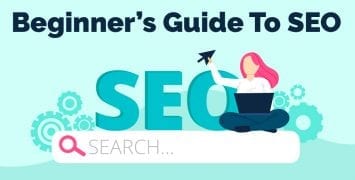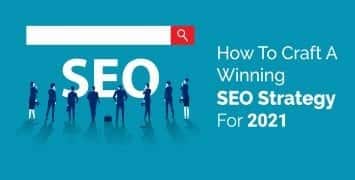The e-commerce industry is challenging in more ways than one. SEO, for one, is difficult enough for any business. When an e-commerce business is looking to scale the rankings, however, there is an incredible amount of competition to deal with. Such businesses often don’t specialize in selling any one thing. Instead, they specialize in selling everything to everyone. How do you improve your SEO efforts when it seems like the only keywords associated with your e-commerce business are incredibly broad and difficult to target? Keep reading to find out!
SEO for E-Commerce Businesses
Research indicates that consumers are drawn to websites that are simple, aesthetically pleasing, and easy to browse through. It’s no surprise, then, that businesses with great websites make a lot more sales. E-commerce websites are a website category of their own. For one, they don’t place an emphasis on text. Instead, photos are a must. Unfortunately, search engine algorithms scan text and not multimedia.
If your e-commerce homepage does not contain sufficient, relevant content that targets the right keywords, it will be incredibly difficult to scale the SERPs. On the other hand, having incredible content and a high ranking but an unappealing site won’t do you much good, either. People who don’t know much about SEO often assume that the more content they publish, the better.
However, Google’s algorithm focuses on offering searchers a positive user experience. No matter how much text you have on your page, if people keep leaving, you will have a high bounce rate and low conversions. This will result in a drop in rankings. That being said, being able to drive traffic towards your website is the first thing that you will need to do when trying to convert visitors to customers.
Driving Organic Traffic Without an Overload of Textual Content
Seeing as e-commerce websites tend to be photo-heavy rather than text-heavy, it’s important to ensure that your site contains content that is written in a manner that will encourage an increase in rankings. The text on the site homepage should encapsulate what your website is about. It should also include the keywords that you want to target, be written in the voice of your brand, and take website navigation into consideration.
Since only a small amount of text will be on an e-commerce site’s homepage, the text that is on the page should revolve around the generation of natural traffic. That means that the bulk of it will be there for the purpose of link building, product descriptions, product information, and social media marketing.
Building Links for an E-Commerce Website
Since there will only be so much text on an e-commerce site, link building is incredibly important. If you aren’t aware of what this, link building is a tactic that SEO specialists use to increase the number of inbound links from relevant sites with good domain authority. These links to your site may lead to your homepage, a landing page, or even a product page, depending on which one is relevant. Before search engine algorithms were this advanced, website owners simply put links to their website anywhere and everywhere that they could, including directories, backlink blogs, and other low-quality sites. With the algorithm today, however, this no longer possible. In fact, a website would be penalized for it. Here are a few things to remember about link building in 2019:
- Look to get inbound links on quality sites with high domain authorities only.
- Avoid getting links from websites that aren’t relevant in any way.
- Aim to get “dofollow” backlinks.
- Do research and look into a website’s backlink portfolio to confirm that it is high-quality before looking to get an inbound link from them.
- Build links on sites that have high engagement.
- Ask for control over anchor text.
- Opt-out of overly promotional links that don’t look genuine.
Understanding Google’s Algorithm
One of the most important things to understand about Google’s search engine algorithm is that it is based on artificial intelligence. Over time, it learns more about how to meet the needs of searchers by giving them search results that are just what they were looking for. When you consider user needs when addressing the internal linking and the skeleton of your website, you will be earning points from Google.
Targeting Powerful Keywords
Keyword research for e-commerce businesses is a little different than it would be for the average business. Simply looking for the most frequently searched terms isn’t enough. After all, most of them will be incredibly broad and difficult to rank for. Thisn’t a good use of your money. Although you can work on increasing your ranking for a few terms with high search volumes, it’s best to concentrate on ranking for terms that cater to exactly what your buyers need. Such terms may not be looked up that often, but those who are searching will be much more likely to convert. Let’s take a look at three things that you should to do look for the right keywords to target:
Consider the Trends
Google Trends is a tool that can help you look for the right search terms to target. Go to the site and put in your main keyword. You will then be able to take a closer look at its trending seasonality. A selection of filters will then make it possible for you to look at related keywords that take location, time, category, and search type into consideration. You can then determine which ones are the most relevant to your business.
Look at Related Search Terms
When you search a term on Google, there will be a section at the bottom of the results page showing related search terms. You may be able to get some ideas of keywords to target from here.
Harness the Power of Social Media Groups
It’s a great idea to take a closer look at your target audience to see what they are saying about it. You may be able to identify what they want and need. This will make it possible for you to come up with search terms that they are most likely to be typing into Google’s search bar.
It’s Hard, But Not Impossible
We’ll admit that SEO for e-commerce isn’t easy. However, it’s far from impossible. There are plenty of tactics that you can use to drive traffic to your website and encourage conversions. When you have a good understanding of your target audience and Google’s preferences, you will be able to put together a strategy that will help you scale the rankings and grow your business!




